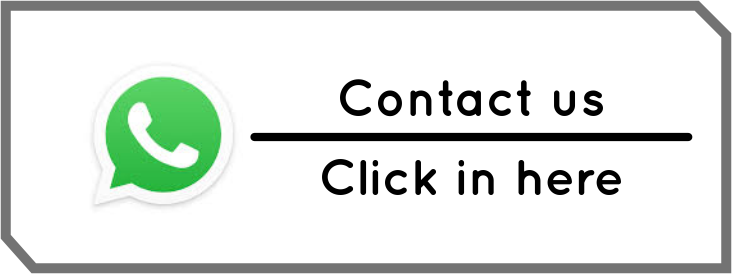Pengaruh Pembelajaran Inkuiri Terbimbing Melalui Pendekatan Saintifik di TK Negeri Pembina Bungi
DOI:
https://doi.org/10.61132/paud.v2i3.673Keywords:
Education, Inquiry, Kindergarten, Learning, ScienceAbstract
This study aims to: 1) to determine the description of the science abilities of children in group B before treatment with the guided inquiry method at Pembina Bungi State Kindergarten, 2) To determine the description of the development of science abilities of children in group B using the guided inquiry method at Pembina Bungi State Kindergarten. The research technique is an experiment with the design of this study One Groups Pretest-Posttest Design. Data collection techniques used in the study are observation, testing and documentation. The subjects of this study were 10 children divided by the study conducted pretest and posttest. The results of this study indicate that 1) the science abilities of children in group B1 with the guided inquiry method have the highest achievement of developing very well at 79% and the lowest value of 58%, and the average value is 71.3%. 2) the results of the posttest of the science abilities of children in group B1, the highest achievement developed very well at 92%, the lowest achievement developed according to expectations at 71%, and the average was 84.6%. This shows the influence of students' science abilities when given the guided inquiry method in group B at Pembina Bungi State Kindergarten, Baubau City. Overall, the study concludes that the guided inquiry method is effective in improving early childhood science learning outcomes, particularly in enhancing curiosity, critical thinking, and problem-solving skills in the classroom context.
References
Abdelghani, R., Law, E., Desvaux, C., & Sauzéon, H. (2024). Interactive environments for training children's curiosity through the practice of metacognitive skills: A pilot study. Learning and Instruction, 74, 101-115. https://arxiv.org/abs/2403.08397 https://doi.org/10.31234/osf.io/dc4x5
AlAli, R. (2024). Young children's attitudes toward science learning in early educational grades. Science Education, 32(1), 1-15. https://www.sciencedirect.com/org/science/article/pii/S2046316224000166
Alami, M., & Law, E. (2020). Pedagogical agents for fostering question-asking skills in children. International Journal of Artificial Intelligence in Education, 30(1), 1–15. https://arxiv.org/abs/2004.03472
Arifin, Z. (2025). The effect of inquiry-based learning on students' critical thinking skills in science education: A meta-analysis. European Journal of STEM Education, 10(1), 1-15. https://www.ejmste.com/download/the-effect-of-inquiry-based-learning-on-students-critical-thinking-skills-in-science-education-a-15988.pdf
Azizah, M., Nuryatmawati, & Dimyati. (2021). Efektifitas pendekatan saintifik terhadap kemampuan pemecahan masalah anak usia 3-6 tahun. Jurnal Obsesi: Jurnal Pendidikan Anak Usia Dini, 5(2), 2071. https://doi.org/10.31004/obsesi.v5i2.1048
Direktorat PAUD. (2016). Pedoman pembelajaran yang mengembangkan kecakapan abad 21. Kementerian Pendidikan dan Kebudayaan.
Henny, H., & Asmawati, S. (2022). Pembelajaran sains dengan pendekatan saintifik berbasis bahan alam sekitar TK Kartika Wirabuana 51 Kota Baubau. Sang Pencerah: Jurnal Ilmiah Universitas Muhammadiyah Buton, 8(3), 670-682. https://doi.org/10.35326/pencerah.v8i3.2444
Inkuiri dalam pembelajaran untuk anak usia dini. (n.d.). Wawasan Pendidikan, 2(1). https://doi.org/10.26877/wp.v2i1.9566
Jalal, F., & Supriadi, D. (2001). Reformasi pendidikan dalam konteks otonomi daerah. Adicita Karya Nusa.
Jumanti, L. P. (2018). Pengaruh penerapan metode inkuiri terhadap kemampuan berpikir kritis peserta didik pada pembelajaran Pendidikan Agama Islam di SMP Negeri 26 Makassar. Jurnal Pendidikan Agama Islam, 8(1), 1-15. https://repositori.uin-alauddin.ac.id/8866/1/Lilas%20Priana%20Jumanti.pdf
Purnomo, H. (2020). Analisis implementasi kurikulum PAUD di Indonesia. Jurnal Pendidikan Anak Usia Dini, 6(1), 45-52.
Rosidah, S., Zulaeha, I., & Formen, A. (2022). Implementasi model pembelajaran inkuiri untuk peningkatan keterampilan berpikir kritis anak usia dini di RA Nurul Haq Kudus. Prosiding Seminar Nasional Pascasarjana, 1007–1010. https://proceeding.unnes.ac.id/index.php/snpasca/article/download/1639/1097
Sardiman. (2018). Interaksi dan motivasi belajar mengajar. RajaGrafindo Persada.
Sugiyono. (2001). Metode penelitian kuantitatif, kualitatif dan R&D. Afabeta.
Sugiyono. (2008). Metode penelitian kuantitatif kualitatif dan R&D. Alfabeta.
Utaminingtyas, S. (2021). Sikap ilmiah siswa dalam pembelajaran IPA. Edukasi Jurnal Pendidikan, 8(2), 1–10. https://journal.unimma.ac.id/index.php/edukasi/article/download/6153/2997
Worth, K. (2015). Science in early childhood classrooms: Content and process. Early Childhood Research & Practice, 17(2), 1–12. https://ecrp.illinois.edu/beyond/seed/worth.html
Downloads
Published
How to Cite
Issue
Section
License
Copyright (c) 2025 Jurnal Pendidikan Anak Usia Dini dan Kewarganegaraan

This work is licensed under a Creative Commons Attribution-ShareAlike 4.0 International License.









